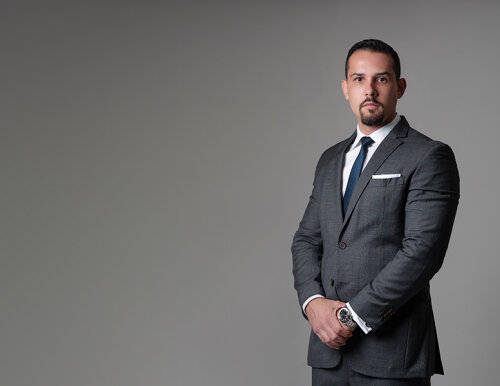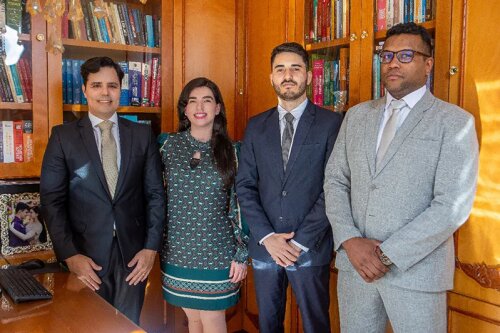Best Trusts Lawyers in Brazil
Share your needs with us, get contacted by law firms.
Free. Takes 2 min.
Or refine your search by selecting a city:
List of the best lawyers in Brazil
About Trusts Law in Brazil
Trusts, as known in common law jurisdictions, do not have a direct equivalent in Brazilian law due to its civil law foundations. In Brazil, a similar concept known as "fideicomisso" exists, which often translates more closely to a fiduciary agreement. Brazilian trust-like arrangements are typically managed through legal structures such as private foundations, fiduciary transfers, and administration committees. These instruments primarily focus on asset management and estate planning.
Why You May Need a Lawyer
Legal assistance is crucial in several scenarios involving Trusts. Estate planning often necessitates creating structures to preserve wealth and ensure its proper distribution according to the settlor's wishes. Moreover, managing complex portfolios or planning international investments require comprehensive trust arrangements and legal oversight. Additionally, when disputes arise regarding the management or interpretation of trust instruments, a lawyer's expertise becomes indispensable. Legal professionals can provide tailored advice to ensure compliance with Brazil's intricate legal framework around trust-like arrangements.
Local Laws Overview
Trusts in Brazil are governed by contract law and estate legal devices instead of the traditional trust concept. The Brazilian Civil Code outlines the legal framework for such fiduciary arrangements, focusing on principles of ownership, fiduciary duty, and asset transfer. Furthermore, regulatory bodies like the Central Bank of Brazil influence certain trust-like activities concerning financial assets. It's important to engage with these laws when establishing any fiduciary arrangement to ensure they align with both Brazilian legal standards and international considerations when applicable.
Frequently Asked Questions
What is the closest legal structure to a trust in Brazil?
The closest legal structure to a trust in Brazil is a "fideicomisso" or fiduciary transfer, often implemented through private foundations or specific contractual arrangements.
Can foreigners establish trusts or similar arrangements in Brazil?
Yes, foreigners can establish fiduciary arrangements in Brazil, but they must adhere to Brazilian law and might require guidance due to complexities with cross-border issues and asset management.
What role do fiduciaries play in Brazil?
Fiduciaries manage and administer assets on behalf of the beneficiaries or the creator of a fiduciary arrangement, similar to trustees in common law jurisdictions, with fiduciary duties outlined by Brazilian law.
What are the common uses of trust-like structures in Brazil?
These structures are often used for estate planning, asset protection, philanthropy, and managing investments, helping to ensure asset distribution aligns with the original wishes of the asset holder.
Are trusts subject to taxes in Brazil?
Yes, fiduciary arrangements and the resulting income are subject to Brazilian taxes, and consulting with tax professionals is recommended to optimize tax obligations.
What legal issues might arise with fiduciary arrangements?
Legal issues can include disputes between beneficiaries and fiduciaries, mismanagement of assets, breaches of fiduciary duty, and non-compliance with legal requirements.
Do Brazilian laws recognize international trusts?
Brazilian law does not directly recognize international trusts, meaning careful planning and legal frameworks may be necessary to incorporate international elements.
Can trusts be used for charitable purposes in Brazil?
Yes, fiduciary structures in Brazil can support charitable activities through private foundations or contracts designed to benefit specific causes.
What protections exist for beneficiaries in Brazil?
The Civil Code and other legal provisions safeguard beneficiaries' rights by mandating fiduciaries act in good faith and in the best interests of beneficiaries.
How can disputes over trusts be resolved in Brazil?
Disputes can often be resolved through mediation or arbitration, but may also require litigation in Brazilian courts, for which professional legal advice is essential.
Additional Resources
Engaging with governmental bodies like the Brazilian Bar Association (OAB) can provide guidance. Consider exploring resources from legal libraries, law schools, or attending seminars on estate planning and fiduciary law to deepen your understanding.
Next Steps
If you require legal assistance with trusts in Brazil, consider consulting with a lawyer specializing in estate planning or contract law. You can begin by reaching out to local or international law firms with expertise in Brazilian law. Prepare all necessary documents and ensure all your queries are addressed to build a comprehensive legal strategy tailored to your specific needs.
Lawzana helps you find the best lawyers and law firms in Brazil through a curated and pre-screened list of qualified legal professionals. Our platform offers rankings and detailed profiles of attorneys and law firms, allowing you to compare based on practice areas, including Trusts, experience, and client feedback.
Each profile includes a description of the firm's areas of practice, client reviews, team members and partners, year of establishment, spoken languages, office locations, contact information, social media presence, and any published articles or resources. Most firms on our platform speak English and are experienced in both local and international legal matters.
Get a quote from top-rated law firms in Brazil — quickly, securely, and without unnecessary hassle.
Disclaimer:
The information provided on this page is for general informational purposes only and does not constitute legal advice. While we strive to ensure the accuracy and relevance of the content, legal information may change over time, and interpretations of the law can vary. You should always consult with a qualified legal professional for advice specific to your situation.
We disclaim all liability for actions taken or not taken based on the content of this page. If you believe any information is incorrect or outdated, please contact us, and we will review and update it where appropriate.
Browse trusts law firms by city in Brazil
Refine your search by selecting a city.

















